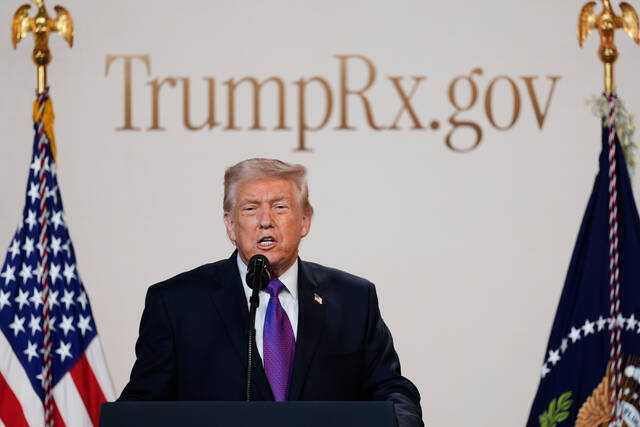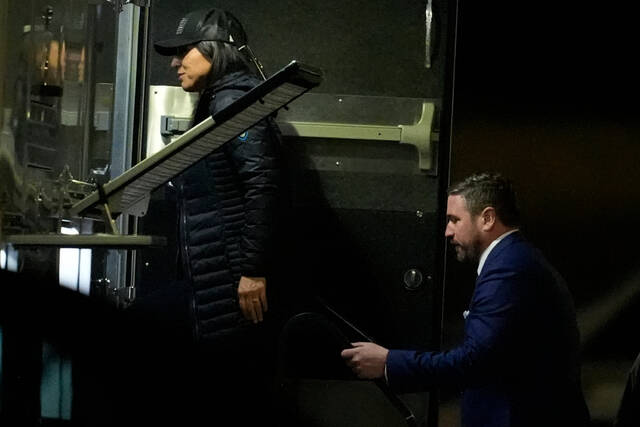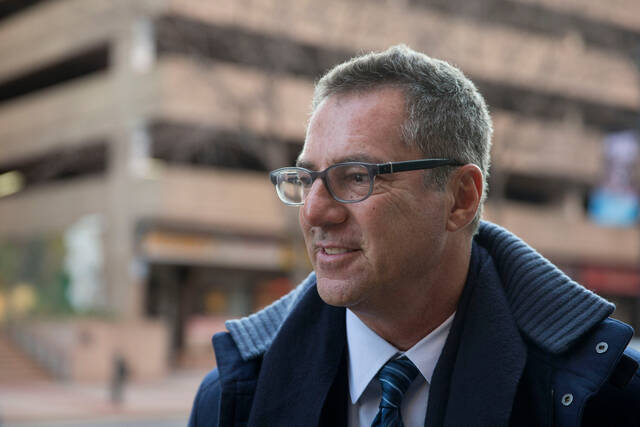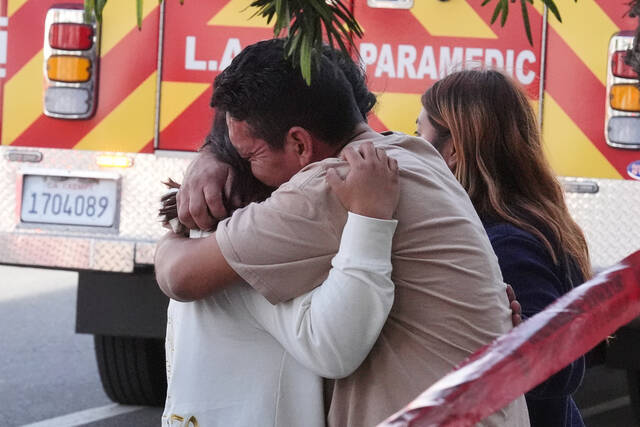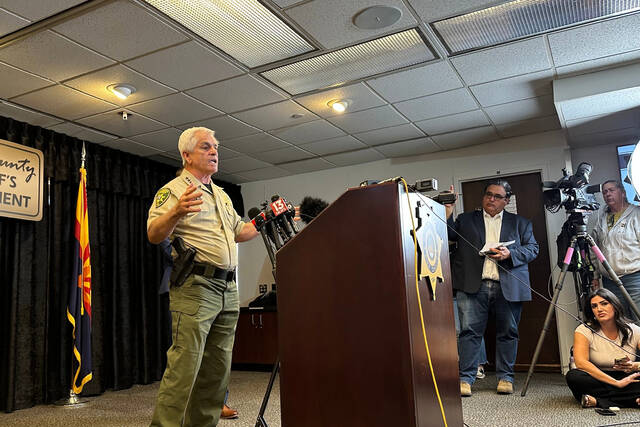Gene Vittone has seen the toll opioid addiction has exacted on his community up close and personal.
The Washington County district attorney, who is also a paramedic, has seen law enforcement, family services and first responders struggle under a tsunami of illicit drug use that once triggered 16 overdoses on a single day in 2015.
“The police and firefighters have been handling this,” Vittone said of the crisis that has played a role in 384 overdose deaths in his county and many times more 911 calls since 2015. “We’ve had a number of ambulance services in the state that were swamped and some that have collapsed after not being reimbursed for those calls. There have been a lot of downstream effects that people just don’t think about.”
Those downstream effects — which have devastated communities across the nation — are at issue in a Cleveland federal courthouse where a trial is scheduled to begin Monday regarding a lawsuit seeking damages from drug distributors and pharmaceutical companies alleged to have been complicit the epidemic.
Vittone is among thousands of elected officials listening closely for any news from that courthouse where a team of state attorneys general and lawyers representing municipalities in various states began marathon meetings Friday trying to strike a multi-billion dollar settlement with three of the nation’s largest drug distributors — AmerisourceBergan, Cardinal Health and McKesson — as well as Johnson & Johnson, Teva and Walgreens.
Formal negotiations broke down Friday evening, but informal negotiations are expected to continue through the weekend.
Should they fail to reach an agreement, the civil trial is scheduled to begin and some 2,300 other municipal complaints will remain in play.
Many believe a global settlement that would include those other cases would prompt other drug companies and distributors facing similar suits to reach a global settlement, not unlike the massive tobacco industry master settlement of 1998 that set aside $260 billion for states dealing with the health costs of cigarettes.
Westmoreland, Washington, Beaver and Cambria counties as well as Allegheny County and the city of Pittsburgh all have suits pending that seek to recover additional costs they’ve incurred for police, courts, emergency medical services and coroner’s services as a result of the opioid epidemic.
Pittsburgh attorney Bob Peirce represents Washington, Westmoreland, Beaver and Cambria as well as four other Pennsylvania counties seeking to recover millions of dollars from drug companies and distributors. That case was consolidated in Delaware County, but Peirce said his office had an attorney at the Cleveland courthouse because a settlement could affect his clients.
“There is a little bit of a conflict because the state attorneys general want all of the money to go to the states and we want some of it to go to the counties. Right now, there is no agreement. They are trying to increase the ante — recently reported at $50 billion — to get it closer to $100 billion,” Peirce said.
Representatives for Pennsylvania Attorney General Josh Shapiro, whose office was among those participating in the settlement talks, declined to comment.
Peirce’s clients fear a global agreement could locate settlement proceeds with the state, which could then funnel money to various ancillary programs rather than the struggling local communities that have had to deal with the human impact of the epidemic.
Local governments want to ensure any global settlement is transparent in terms of how and when funds will be distributed and spells out the role the major contributors played in the epidemic over the years.
The New York Times reported that when U.S. District Judge Dan Polster called parties to the opioid cases to a meeting in January 2018 inside his Cleveland courtroom, mayors, county executives and chiefs of police from communities across the country lined up to recount the scourge opioids had visited on their communities.
Assessing the financial costs is difficult, but there is little question the number is large.
In Westmoreland County alone, officials said taxpayers paid nearly $19 million in 2016 to fund government operations related to the opioid epidemic.
Last week, Pennsylvania Auditor General Eugene DePasquale reported that Medicaid costs for opioid treatment in Pennsylvania reached $178 million last year.
And a study by the Society of Actuaries released last week pegged the total costs to the U.S. economy at $631 billion from 2015-18.
While more than 2,000 state and local governments have sued the drug industry over the crisis, the report released Tuesday finds that governments bear less than one-third of the financial costs. The rest of it affects individuals and the private sector, with the greatest loss coming from the unrealized lifetime earnings of those who died from drugs.
The Associated Press contributed to this report. Deb Erdley is a Tribune-Review staff writer. You can contact Deb at 724-850-1209, derdley@tribweb.com or via Twitter @deberdley_trib.




